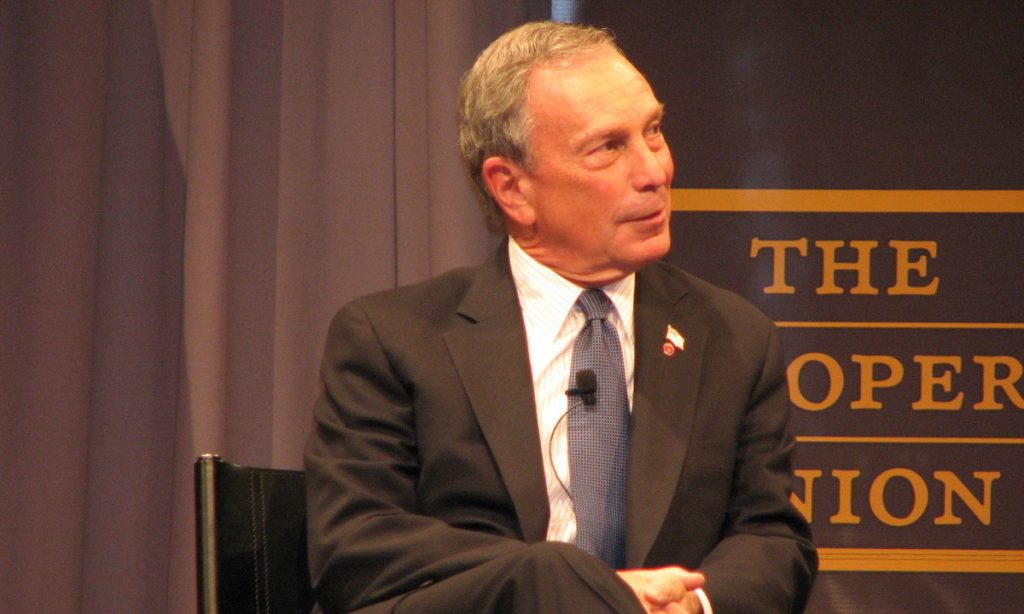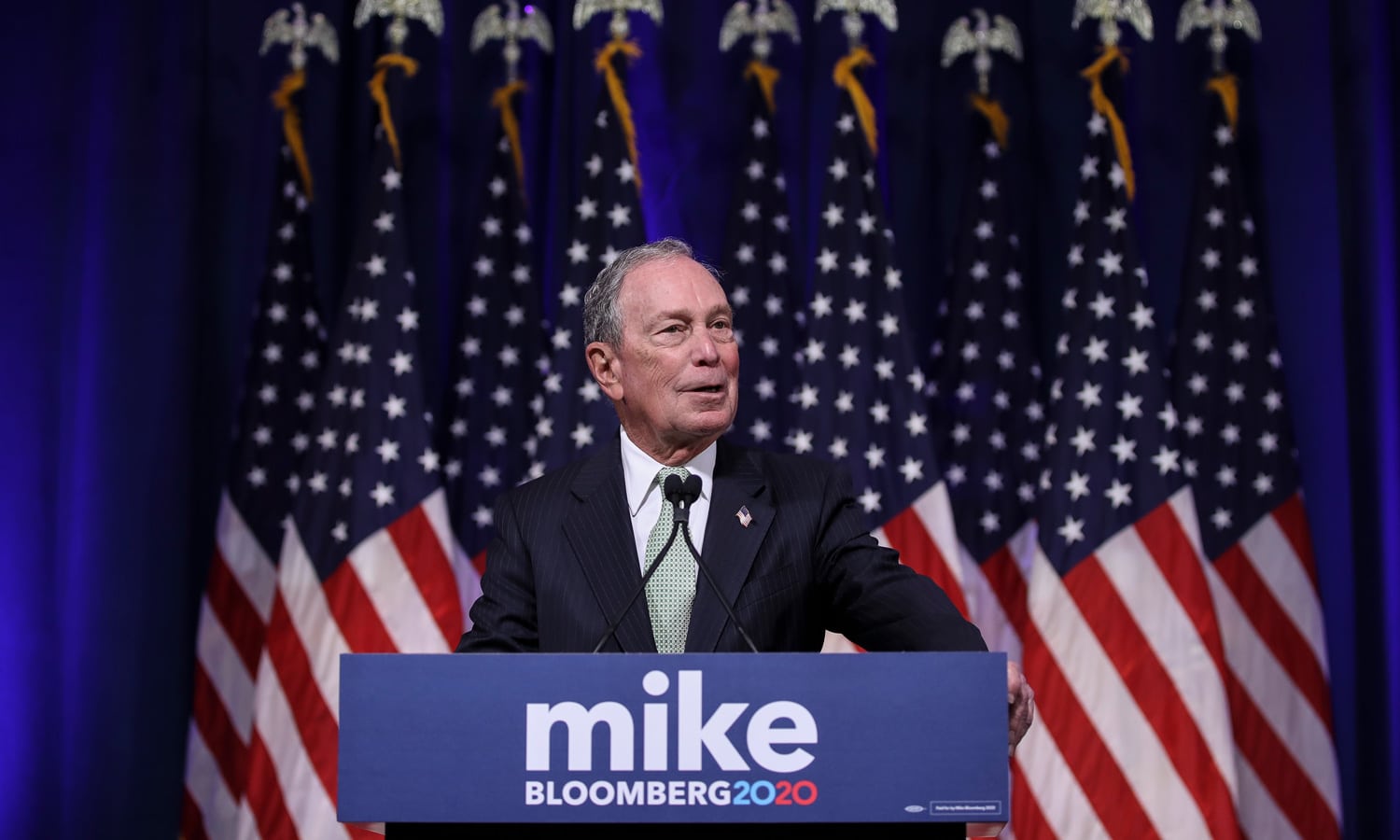Michael Bloomberg has a harsh history with marijuana, both from his comments and legislation.
If Michael Bloomberg’s late presidential bid served as the only political oddity of his campaign, perhaps he’d be able to overcome the self-imposed setback. But Bloomberg enters the race with a large, green mark on his back that could derail the former New York City mayor before he gets started. Because when it comes to marijuana legalization, Bloomberg has made it clear he is no fan.
At the beginning of this year, when rumors first circulated about Bloomberg’s intention to run for President, he delivered a speech at the U.S. Naval Academy. As other candidates prepared bold drug policy reform plans, Bloomberg declared efforts to legalize marijuana as “stupid,” and used the rising rates of drug overdose deaths as reason why.
RELATED: Does Marijuana Legalization Lead To More Problematic Weed Use?
“Last year, in 2017, 72,000 Americans OD’d [overdosed] on drugs. In 2018, more people than that are OD’ing on drugs, have OD’d on drugs, and today, incidentally, we are trying to legalize another addictive narcotic, which is perhaps the stupidest thing anybody has ever done,” Bloomberg told the crowd.
While speaking at Annapolis, former New York Mayor Michael Bloomberg also blasted efforts to legalize marijuana, calling it “perhaps the stupidest thing we’ve ever done.” pic.twitter.com/dN5sdJdYBt
— DJ Judd (@DJJudd) January 23, 2019
The sentiment echoed similar comments the former mayor made at the University of Toronto a week prior.
“To go and encourage people—to make it easier for people to engage in a behavior that has a significant possibility of damaging people’s health—is just nonsensical,” Bloomberg said. “This mad, passionate rush to let everybody do things without any research just isn’t something we would do in any other way.”
This stance positions Bloomberg as further right than former Vice President Joe Biden, who was excoriated last month when he suggested marijuana might be a “gateway drug.” Biden also believes marijuana should be decriminalized and re-scheduled to become a Schedule II drug, which would allow scientists to more freely research cannabis. However, in 2013, when New York legislators prepared a medical marijuana bill for patients suffering from cancer, multiple sclerosis, and HIV/AIDS, Bloomberg dismissed the notion that cannabis contained any therapeutic value.
“Yeah, right, medical. Come on,” he said. “There’s no medical. This is one of the great hoaxes of all times.”
RELATED: The War On Drugs Isn’t Over, According To The FBI
Bloomberg ultimately served three terms as New York City mayor, beginning in 2002. During that time, the Drug Policy Alliance tracked marijuana arrest records in the city, which slowly rose throughout Bloomberg’s tenure, despite low-level possession being decriminalized in the 1970s in the city. There were more than 440,000 marijuana-related arrests made in New York between 2002 and 2012, a figure higher than the combined marijuana-related arrests made under the tenures of Rudy Giuliani, David Dinkins, and Ed Koch. New York City police spent close to 1 million hours processing marijuana-related arrests between 2002 and 2012 as well.

These numbers resulted in city council members and activists to protest outside Michael Bloomberg’s home in 2011. According to the DPA, the arrests highlighted a racial disparity in enforcing drug laws within New York.
Currently, support for marijuana legalization has never been higher in the United States. A recent Gallup poll found that two out every three Americans believed marijuana prohibition should end, and legislation that would effectively legalize cannabis was recently approved in a bipartisan support in the House Judiciary Committee. Whether Michael Bloomberg changes his policy stance on the campaign trail or not, his harsh record on marijuana could impede any him gaining any significant momentum in the race for the Democratic bid.


